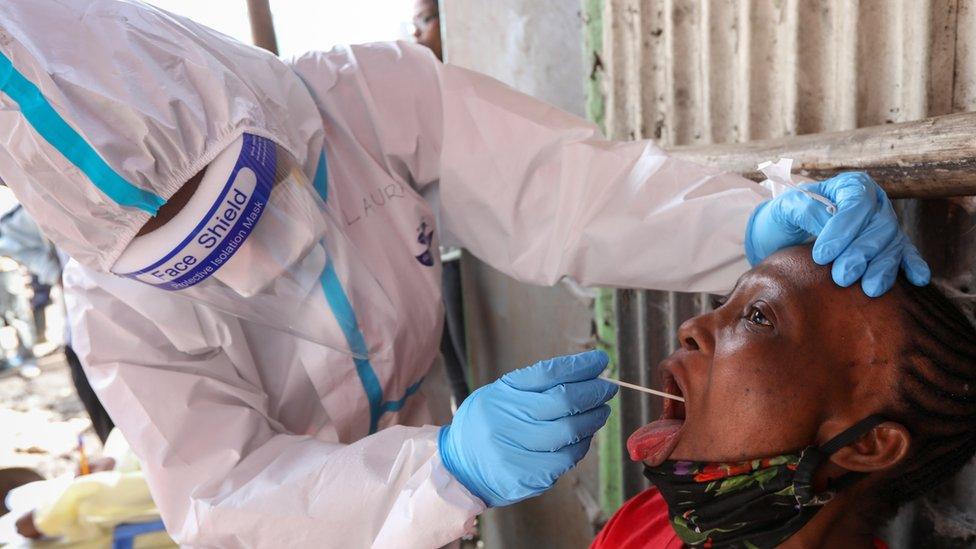Coronavirus in South Africa: Restrictions ease as Covid-19 cases rise rapidly
- Published
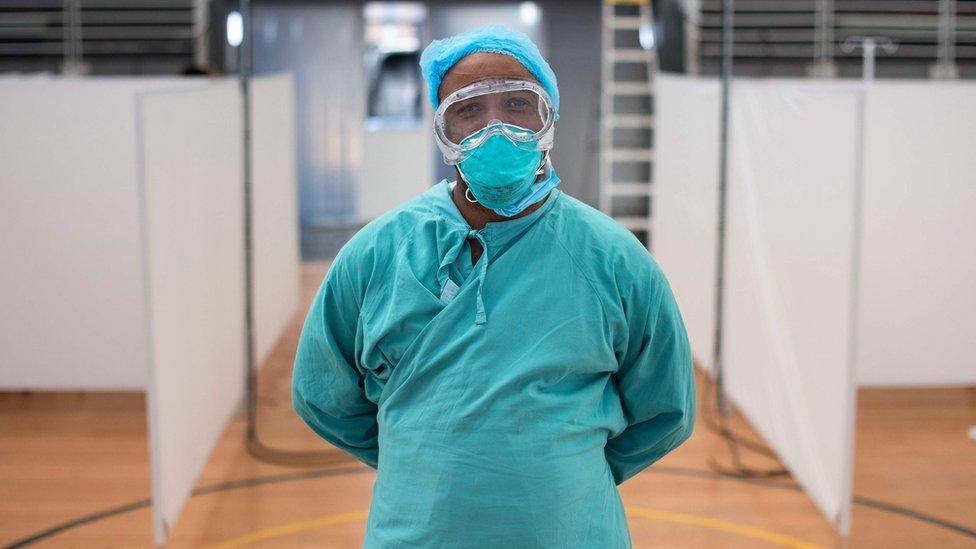
South Africa's health sector has used the lockdown period to prepare for an influx of cases
In the face of a deteriorating economic situation, South Africa's President Cyril Ramaphosa has opted to ease lockdown restrictions further even though coronavirus cases are beginning to rise rapidly.
In the past week alone, the number has increased by 37%.
But in a frank address to the nation, the president highlighted the need to preserve peoples' livelihoods.
As a result, he said that parts of the leisure industry will reopen soon.
At the end of March, the country entered into one of the strictest lockdown regimes in the world, almost all movement outside was restricted and the sale of cigarettes and alcohol was banned.
Those measures have been credited with slowing the initial spread of Covid-19 and, as Mr Ramaphosa said, gave the health sector valuable time to prepare for an influx of patients.


But, he warned "this task is far from complete. Even after 100 days, we are still near the beginning of this epidemic and it will remain with us for many more months, possibly years".
Nevertheless, sit-down restaurants, casinos, hotels and hair-dressers, among other businesses, will now be able to reopen, which could see half a million people going back to work. But no date was set for when this will happen.


At the beginning of the month, the key mining sector as well as manufacturing businesses were allowed to return to normal production levels. People were also allowed outside and the ban on the sale of alcohol to drink at home was lifted between Monday and Thursday.
South Africa's economy has taken a massive knock as a result of months of lockdown and the further easing of restrictions will be welcome relief to struggling small business owners, BBC business reporter Vumani Mkhize says.
The country has recorded more than 80,000 cases of coronavirus and there have been 1,674 deaths.


Are overall deaths increasing?
Surprisingly not. Research carried out by the BBC suggests that between 25 March, just before the first death from coronavirus was recorded, to 2 June the number of deaths in South Africa has actually been 9% lower than the average from other years, with about 7,400 fewer people dying than usual.
This is different to most other countries.
With people confined to their homes, South Africa saw fewer reported deaths from common incidents such as traffic accidents.
Also, epidemiologist Professor Debbie Bradshaw from the South African Medical Research Council said that "homicides almost halved" when alcohol sales were banned.
"But at the same time we think the other infectious diseases were probably affected as well; the more usual flu or severe pneumonias that come about in winter were also slowed down."
As restrictions have eased, weekly deaths have begun to climb back to normal levels.
Convent hit by coronavirus
The Western Cape province, which includes Cape Town, the seat of parliament, is the hardest hit place in the country with nearly 60% of all the cases of coronavirus.
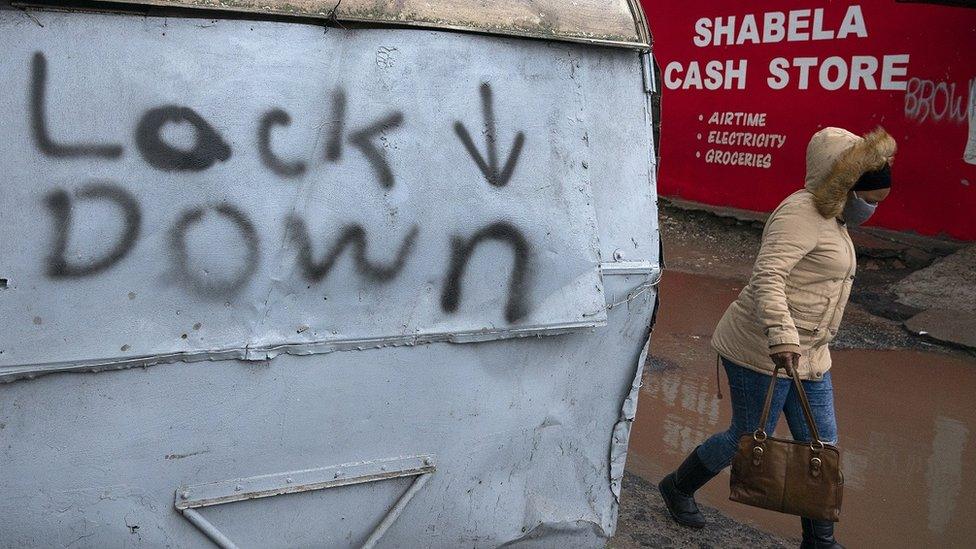
The easing of the lockdown began at the beginning of the month
But cases are also rising rapidly in the Eastern Cape province, the president warned.
A Catholic convent in that province has been particularly hard hit.
Five nuns at the Mother House Convent in Mthatha have died from the virus, Eyewitness News reports, external. Seventeen others have tested positive and the local health authority has said it is taking measures to manage the outbreak there.
In rural areas of the KwaZulu-Natal province, clean water is scarce, making hand washing difficult
Some health workers have also been complaining of a lack of space and equipment, the AFP news agency reports.
It quotes a nurse at Livingstone Hospital in Eastern Cape as saying that the management of the hospital has been chaotic.
"Last time I went on duty I got eight gloves," she said. "How do I work with eight pairs of gloves for a 12-hour shift?"
What about other countries in Africa?
In the continent as a whole, cases appear have been steadily rising at a rate of about 30% week-on-week since the middle of May.
The growth is being driven by South Africa, Egypt, Ghana, Algeria and Nigeria, according to Dr John Nkengasong, the head of the Africa Centres for Disease Control and Prevention.


While South Africa has the highest number of cases, Egypt has recorded the highest number of deaths - 1,850.
So far Africa has been the continent least affected by Covid-19, but the World Health Organization has expressed concern that the spread of the virus could accelerate.

A SIMPLE GUIDE: What are the symptoms?
HOW A VIRUS SPREADS: An explanation
RECOVERY: How long does it take to get better?

- Published26 May 2020
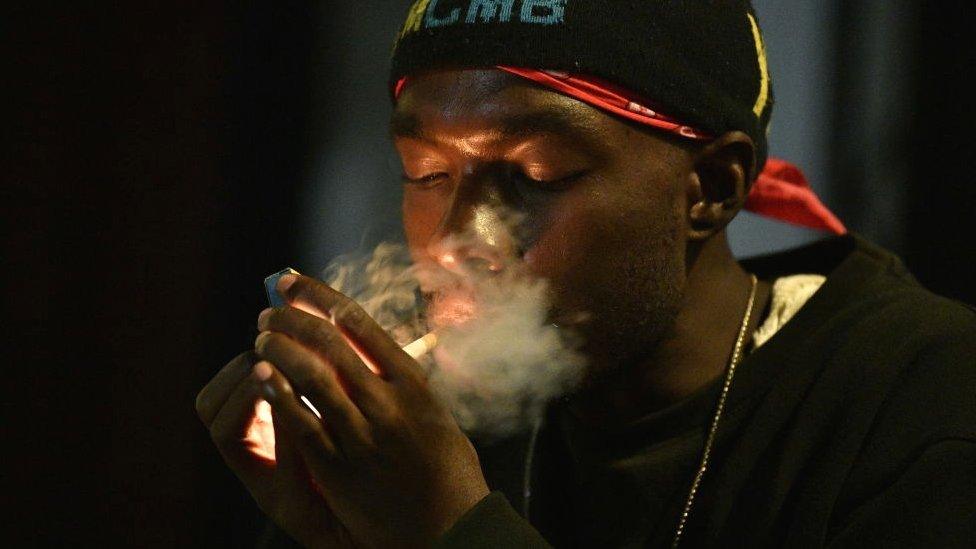
- Published12 May 2020
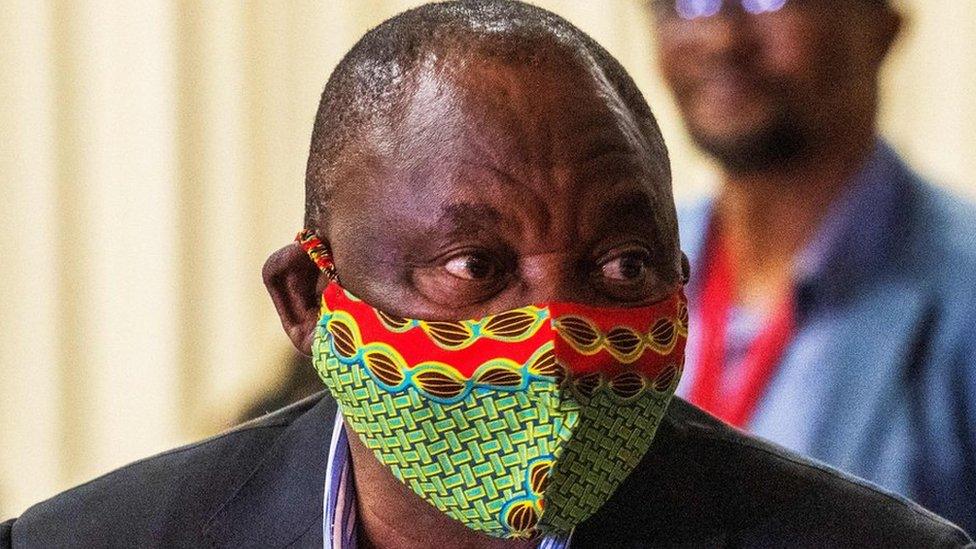
- Published31 May 2020
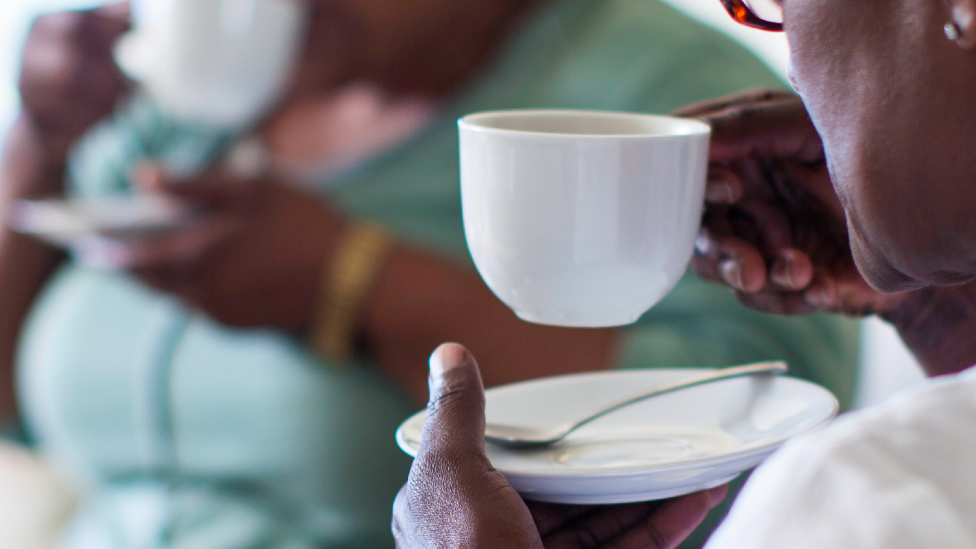
- Published27 May 2020
